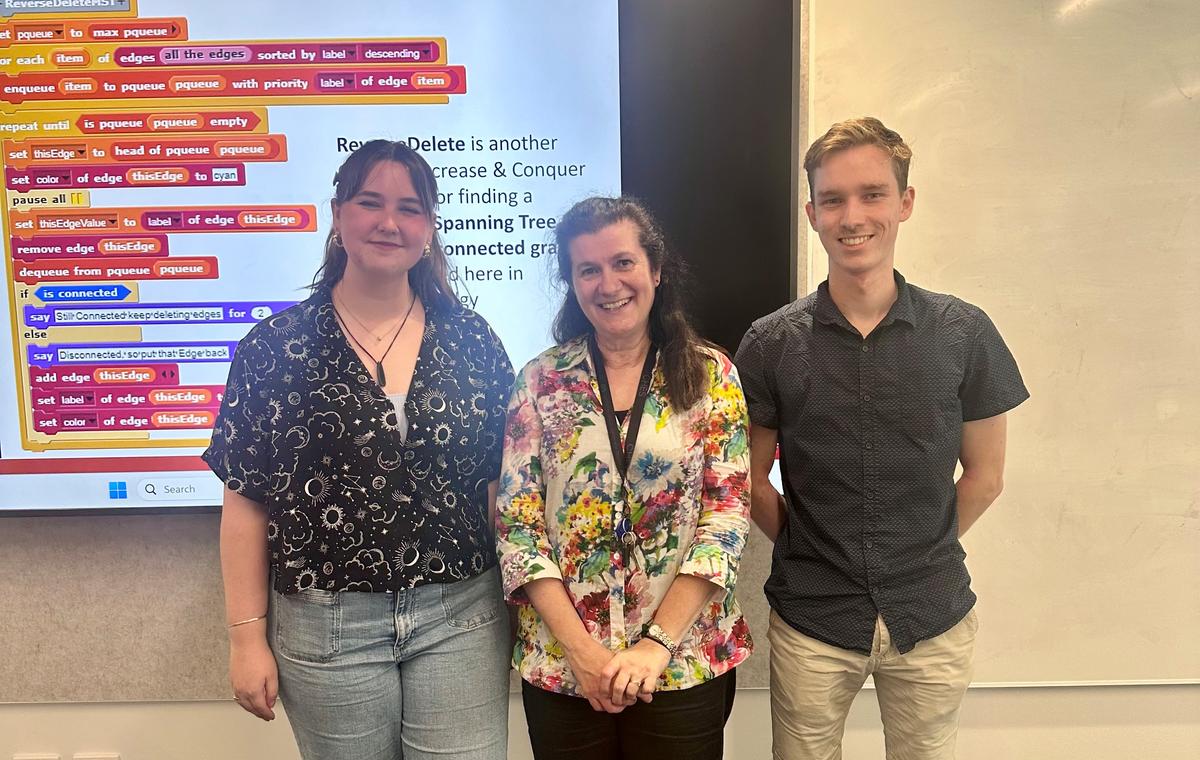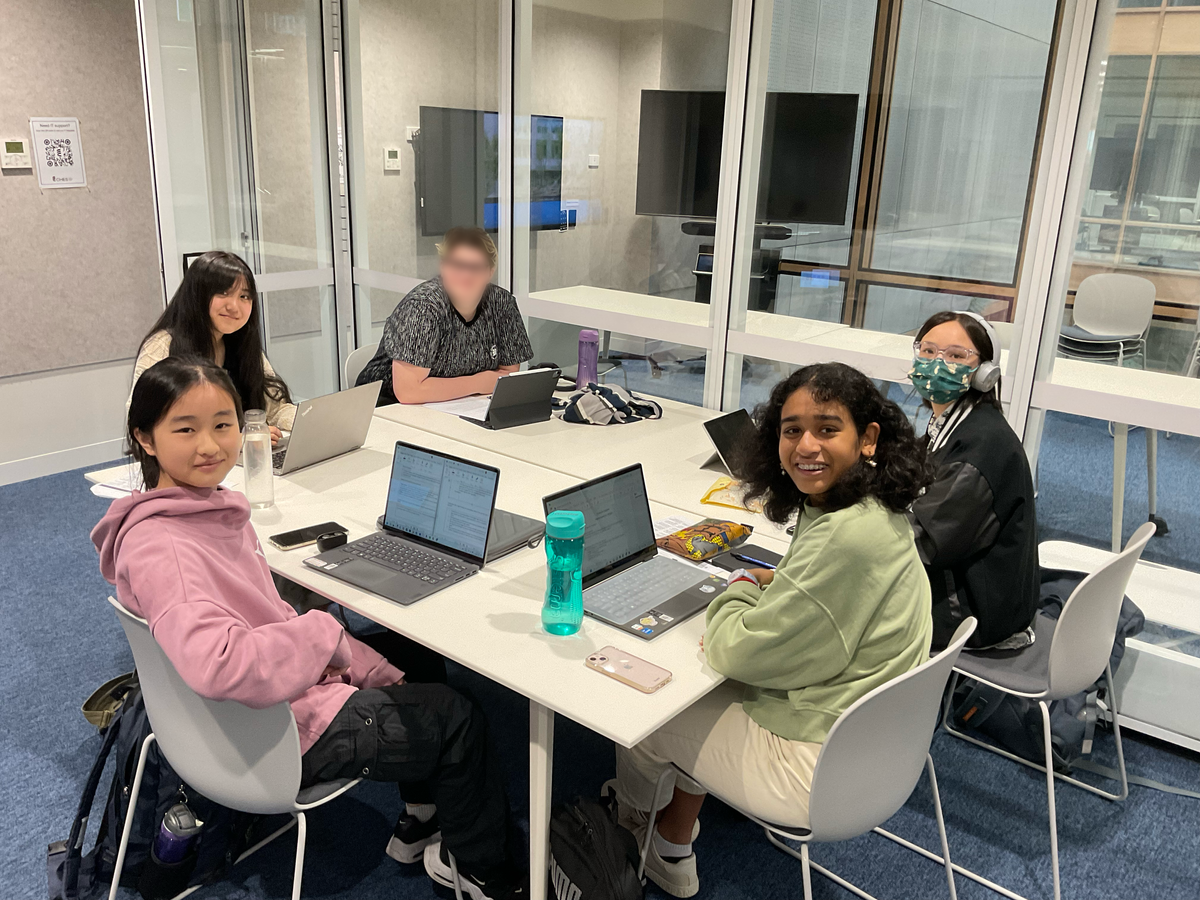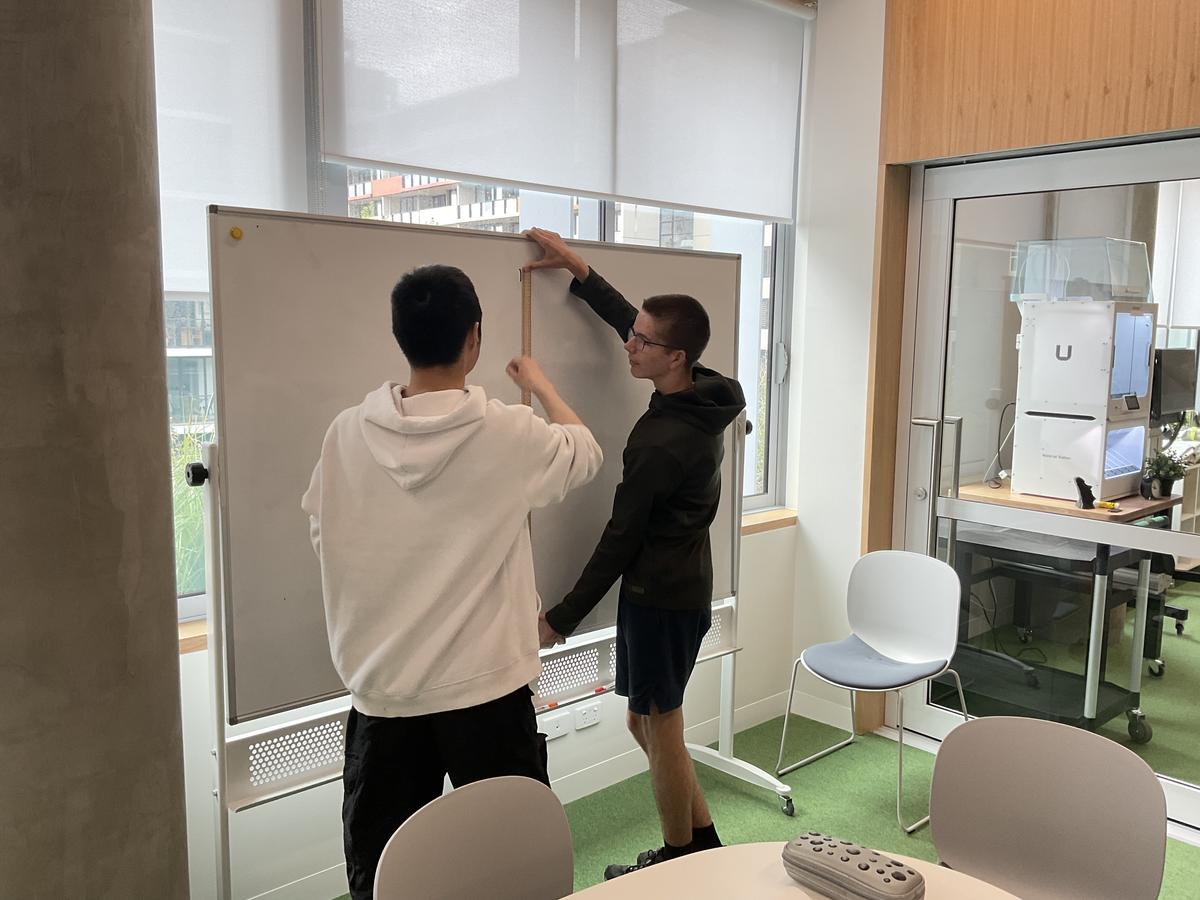VCE Studies at CHES
Algorithmics, English Language, Extended Investigation, Specialist Mathematics

VCE Studies at CHES
Algorithmics, English Language, Extended Investigation, Specialist Mathematics
At CHES we specialise in four VCE studies that typically have great appeal for high-ability students. In 2024, we are teaching these subjects through our hy-flex online and on-site approach:
Our VCE enrolments have more than doubled since last year with a total of 163 students enrolled in a VCE subject with us this year. On the whole, our students have made an excellent start to the year.
Our hy-flex approach to curriculum delivery enables students to participate at times that suit them after school (typically between 4.00pm and 6.00pm) and during study periods in their base school timetable.
In VCE Algorithmics, CHES students have been developing and applying knowledge and skills in data abstraction, selecting appropriate ADTs and using them to model key aspects of real-world problems. Students have already studied a variety of collection-based data types, with a particular focus on the graph ADT, which encapsulates a set of nodes along with their interconnections. Students are exploring how graph ADTs can be applied to network problems, such as social or transport network problems, and planning problems.


In the next term, students will learn to use algorithms to describe general approaches to problem-solving and to decompose problems into smaller parts that can be solved independently. We’re looking forward to exploring example applications of these algorithms to efficiently solve problems.


Recently, one of our university tutors, Cally Norris, presented to CHES students on quantum computing and offered insights into her current internship with the CSIRO. Cally is pictured here with our Algorithmics teacher, Georgia, and another one of our tutors, Freddie.


We are proud to now be offering VCE English Language as one of the 4 VCE subjects we specialise in at CHES.
VCE English Language is a unique English subject because it explores the ways in which language is used by individuals and groups and is informed by the university discipline of Linguistics. It provides an excellent foundation for future university studies, regardless of the university degree students pursue.


In Term 1, students in our English Language class have been learning the ways language is organised so that its users have the means to make sense of their experiences and to interact with others. They have explored the various functions of language and the nature of language as a system of signs and conventions, including sounds, words, sentences and whole texts.
As our English Language class proceeds through this year, they will study the developmental stages of language acquisition. Students will explore how, in addition to words and their meanings, people learn to use the phonological and grammatical conventions of the language, as well as the appropriate use of these conventions in different situational contexts. The history of English, and English around the world, will also be studied.
In Term 1, our Extended Investigation class have been developing their skills in question construction and design, exploring the nature and purpose of research and various research methodologies, and critically reviewing research literature to identify a specific research question. They continue to document their progress in their Extended Investigation Journal. Their research questions were formally lodged with the VCAA during Term 1 and were approved to proceed.


Students are now learning about the practical aspects of planning and undertaking research, methods of research and their application, and the general principles of research project management (including establishing and meeting timelines and milestones). Underpinning their investigations is the development and application of critical thinking skills.


In Term 1, VCE Extended Investigation students visited State Parliament to learn more about the ways that research and evidence are used to inform significant public policy decisions.
Students in our Extended Investigation class also had the opportunity to join the Top Talks event where students from 2023 presented their research oral reports.


The following word cloud provides a snapshot of the themes that students have been pursuing as part of their extended investigation.
We are excited to follow the progress of our EI students' independent research this year.


In Term 1, our VCE Specialist Mathematics classes joined us here at CHES for their Seminar Day in addition to their weekly live lessons on Tuesdays and Wednesdays. Learning in Specialist Maths is based around interactive small-group discussion, application of new concepts and skills, team-based whiteboard activities, and complex problem-solving.
Across the course of the year, students will have the opportunity to learn significant mathematical topics through Specialist Mathematics—the most advanced maths subject in VCE.


Our classes are participating in these areas of study throughout the year: ‘Algebra, number and structure’, ‘Calculus’, ‘Data analysis, probability and statistics’, ‘Discrete mathematics’, ‘Functions, relations and graphs’, and ‘Space and measurement’.


At CHES we are proud to be offering opportunities for students across Victorian government schools to access and engage in the highest levels of mathematics.


In 2023, three CHES students were among the top 4 highest achieving students in Victoria in their respective subjects. This is a testament to their hard work, intelligence and engagement in their learning.
In addition, student feedback on the annual 'Student Attitudes to School' survey implemented by the Department of Education was highly positive for all variables, including:
Our 2023 student attendance rates were exceptionally high at CHES. Even though students are participating in CHES classes from around the state, we have much lower levels of absence than the state average. The overall attendance rate was 93%.
We hold high expectations for student attendance and participation, and we actively monitor and follow-up any absences. We're proud that the attendance rates for rural and regional students has been just as high as metropolitan students.
The high levels of student attendance are also reflective of the attitudes that our students themselves hold towards attendance (93% of students endorsed 'Attitudes to Attendance' compared to the 78% state average and 91% of students endorsed 'Motivation and Interest' in relation to their subjects with us compared to the state average of 58% in Years 10 to 12). Overall, these are really positive outcomes.